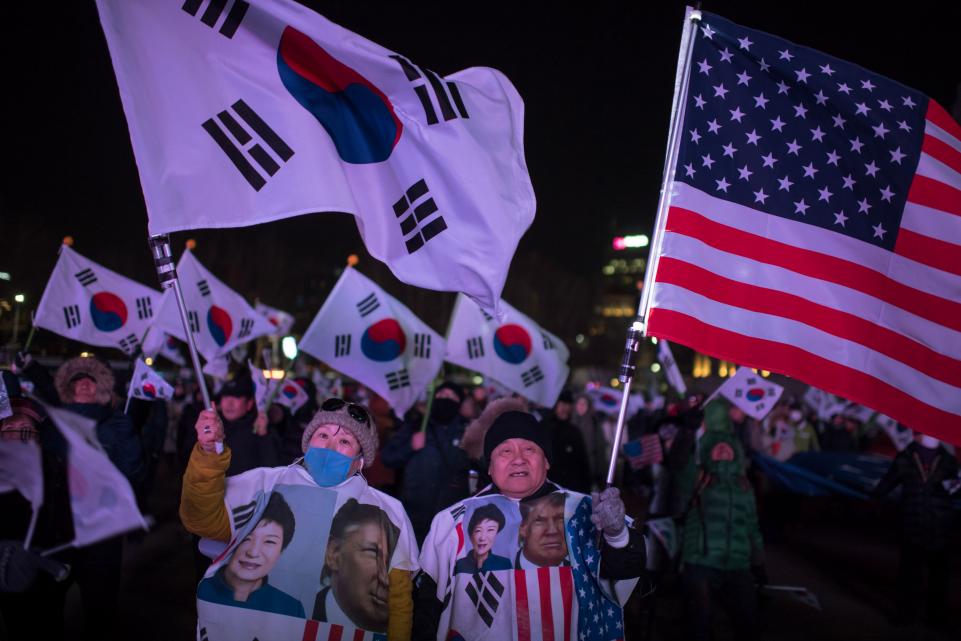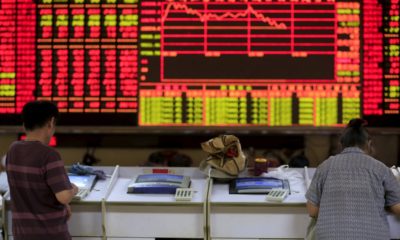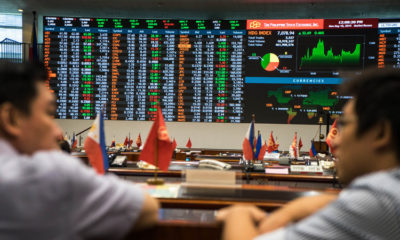- South Korea Removes President Park Geun-hye
A South Korean court removed the president on Friday, a first in the nation’s history, rattling the delicate balance of relationships across Asia at a particularly tense time.
Her removal capped months of turmoil, as hundreds of thousands of South Koreans took to the streets, week after week, to protest a sprawling corruption scandal that shook the top echelons of business and government.
Park Geun-hye, the nation’s first female president and the daughter of the Cold War military dictator Park Chung-hee, had been an icon of the conservative establishment that joined Washington in pressing for a hard line against North Korea’s nuclear provocations.
Now, her downfall is expected to shift South Korean politics to the opposition, whose leaders want more engagement with North Korea and are wary of a major confrontation in the region. They say they will re-examine the country’s joint strategy on North Korea with the United States and defuse tensions with China, which has sounded alarms about the growing American military footprint in Asia.
Ms. Park’s powers were suspended in December after a legislative impeachment vote, though she continued to live in the presidential Blue House, largely alone and hidden from public view, while awaiting the decision by the Constitutional Court. The house had been her childhood home: She first moved in at the age of 9 and left it nearly two decades later after her mother and father were assassinated in separate episodes.
Eight justices of the Constitutional Court unanimously decided to unseat Ms. Park for committing “acts that violated the Constitution and laws” throughout her time in office, Acting Chief Justice Lee Jung-mi said in a ruling that was nationally broadcast.
Ms. Park’s acts “betrayed the trust of the people and were of the kind that cannot be tolerated for the sake of protecting the Constitution,” Justice Lee said.
As the verdict was announced, silence fell over thousands of Park supporters who rallied near the courthouse waving South Korean flags. Soon, they tried to march on the court and called for “destroying” it. When the police blocked them, some of the mostly elderly protesters attacked the officers with flagpoles, hurling water bottles and pieces of the sidewalk pavement. Two pro-Park demonstrators, ages 60 and 72, died during the unrest.
Ms. Park did not comment on the ruling, and remained in the presidential palace after her removal from power. But in Myung-jin, the leader of Ms. Park’s conservative Liberty Korea Party, said he “humbly respected” the ruling.
With the immunity conferred by her office now gone, Ms. Park, 65, faces prosecutors seeking to charge her with bribery, extortion and abuse of power in connection with allegations of conspiring with a confidante, her childhood friend Choi Soon-sil, to collect tens of millions of dollars in bribes from companies like Samsung.
By law, the country must elect a new president within 60 days. The acting president, Hwang Kyo-ahn, an ally of Ms. Park’s, will remain in office in the interim. The Trump administration is rushing a missile defense system to South Korea so that it can be in place before the election.
After the ruling, Mr. Hwang called key Cabinet ministers to put the nation on a heightened state of military readiness, saying the lack of a president represented a national “emergency.” He also warned North Korea against making “additional provocations.”
The last time a South Korean leader was removed from office under popular pressure was in 1960, when the police fired on crowds calling for President Syngman Rhee to step down. (Mr. Rhee, a dictator, fled into exile in Hawaii and died there.)
In a sign of how far South Korea’s young democracy has evolved, Ms. Park was removed without any violence, after large, peaceful protests in recent months demanding that she step down. In addition to the swell of popular anger, the legislature and the judiciary — two institutions that have been weaker than the presidency historically — were crucial to the outcome.
“This is a miracle, a new milestone in the strengthening and institutionalizing of democracy in South Korea,” said Kang Won-taek, a political scientist at Seoul National University.
When crowds took to the streets, they were not just seeking to remove a leader who had one year left in office. They were also rebelling against a political order that had held South Korea together for decades but is now fracturing under pressures both at home and abroad, analysts said.
Ms. Park’s father ruled South Korea from 1961 to 1979. He founded its economic growth model, which transformed the nation into an export powerhouse and allowed the emergence of family-controlled conglomerates known as chaebol that benefited from tax cuts and anti-labor policies.
Ms. Park was elected in 2012 with the support of older conservative South Koreans who revered her father for the country’s breakneck economic growth.
But the nexus of industry and political power gave rise to collusive ties, highlighted by the scandal that led to Ms. Park’s fall.
The scandal also swept up the de facto head of Samsung, Lee Jae-yong, who was indicted on charges of bribing Ms. Park and her confidante, Ms. Choi.
Samsung, the nation’s largest conglomerate, has been tainted by corruption before. But the company has been considered too important to the economy for any of its top leaders to spend time behind bars — until now. The jailing of Mr. Lee, who is facing trial, is another potent sign that the old order is not holding.
In the wake of the Park scandal, all political parties have vowed to curtail presidential power to pardon chaebol tycoons convicted of white-collar crimes. They also promised to stop chaebol chairmen from helping their children amass fortunes through dubious means, like forcing their companies to do exclusive business with the children’s businesses.
With the conservatives discredited — and no leading conservative candidate to succeed Ms. Park — the left could take power for the first time in a decade. The dominant campaign issues will probably be North Korea’s nuclear weapons program and South Korea’s relations with the United States and China.
If the opposition takes power, it may try to revive its old “sunshine policy” of building ties with North Korea through aid and exchanges, an approach favored by China. That would complicate Washington’s efforts to isolate the North at a time other Asian nations like the Philippines are gravitating toward Beijing.


 Forex2 weeks ago
Forex2 weeks ago


 Naira2 weeks ago
Naira2 weeks ago
 Naira4 weeks ago
Naira4 weeks ago
 Company News4 weeks ago
Company News4 weeks ago
 Billionaire Watch1 week ago
Billionaire Watch1 week ago




 Naira2 weeks ago
Naira2 weeks ago




 Naira4 weeks ago
Naira4 weeks ago




 Naira1 week ago
Naira1 week ago



















